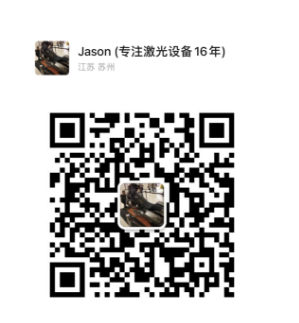Comparison of UV laser marking technology with other laser marking technologies (such as CO2 laser, fiber laser, etc.) can be analyzed from a number of aspects, including the principle, applicable materials, marking effect, cost, speed and so on. The following is a comparison of various types of laser marking technology:
1. Principle
UV laser: the use of ultraviolet laser with a wavelength of about 355 nanometers, mainly through the light triggered by the photochemical reaction of the material, so that the material is directly cracked without generating a lot of heat, suitable for fine marking.
CO2 laser: the wavelength is usually 10.6 microns, the use of heat to make the material melt or sublimation, suitable for non-metallic materials.
Fiber laser: the wavelength is 1064 nm, with thermal energy to act on the material, suitable for marking metals and some plastics.
2. Applicable materials
UV laser: widely used in plastics, glass, ceramics, coatings and some metals, especially for transparent plastics and complex surfaces with good results.
CO2 laser: mainly applicable to non-metallic materials, such as wood, plastic, paper, etc., poor marking effect on metal materials.
Fiber laser: suitable for all kinds of metals (such as stainless steel, aluminum, titanium, etc.) and some high-performance plastics.
3. Marking effect
UV laser: high precision, high clarity, suitable for micro-fine patterns and text, small heat-affected zone, to avoid material deformation and scorching.
CO2 laser: able to realize coarser patterns or text, but may lead to edge melting or scorch marks, heat-affected zone is larger.
Fiber laser: moderate marking depth, good marking effect, especially suitable for metal marking, but the effect is not as good as UV laser on non-metallic materials.
4. cost and maintenance
UV laser: equipment costs are relatively high, but long-term use of low maintenance costs, suitable for high-end applications.
CO2 laser: equipment cost is low, maintenance is simple, suitable for large-scale non-metallic production.
Fiber laser: medium equipment cost, low maintenance requirements, generally long service life.
5. Speed
UV laser: faster in high-precision marking, suitable for high-efficiency production.
CO2 laser: faster for large areas or thick materials, but slower for micro-fine marking.
Fiber laser: fast in metal marking, suitable for high volume processing.
6. Applicable fields
UV laser: electronic products, pharmaceuticals, cosmetics, food packaging and other industries, focusing on the clarity and precision of the marking.
CO2 laser: wood products, paper products, leather products and other industries, consumables-based market.
Fiber laser: metal processing industry, high-grade product marking and anti-counterfeiting.
UV laser marking technology has become the first choice for many high-end manufacturing industries due to its material-friendly, high-precision and environmentally friendly features, but CO2 laser and fiber laser each have their own advantages in different application scenarios and needs. Choosing the right laser marking technology needs to be considered in light of a variety of factors such as actual needs, cost and material type. Click here to contact Suntop Laser today for more information.





















































